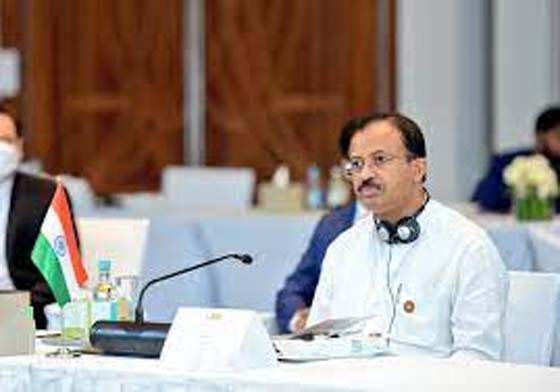In the heart of New Delhi, Minister of State for External Affairs and Parliamentary Affairs, V. Muraleedharan (MoS), underscores the paramount significance of an unfurled, lucid, and result-driven progression in the United Nations (UN) reforms, encompassing a meticulous timeframe. He iterates India’s backing for policies that empower commerce and investment to function as a catalyst for universal growth and affluence.
These declarations surfaced during the G20 Foreign Ministers’ Meeting (FMM), held under the auspices of the Brazilian G20 Presidency from the 21st to the 22nd of February in Rio de Janeiro. The FMM, chaired by Mauro Vieira, the Minister of Foreign Affairs of Brazil, drew the participation of Foreign Ministers, Heads of Delegation from G20 Members, invited nations, and International Organizations.
As outlined by the Ministry of Foreign Affairs, in the inaugural session of the FMM, themed “G20’s role in addressing ongoing international tensions,” MoS articulates India’s unwavering endorsement of Brazil’s G20 Presidency. He observes that four developing nations (Indonesia, India, Brazil, and South Africa) consecutively hold the G20 Presidency. Reflecting on the inclusion of the African Union (AU) in the G20 the previous year, MoS extends a warm welcome to the AU as a permanent G20 Member at its inaugural G20 FMM.
MoS accentuates the significance of an all-encompassing and action-centric approach to contemporary global predicaments, which disproportionately impact the Global South. He reminisces about the constructive consensus achieved in the G20 New Delhi Leaders’ Declaration (NDLD) and urges sustained attention on developmental issues, advocating for the swift implementation of all agreed NDLD decisions and outcomes.
Transitioning to Session II of the FMM, focusing on “Global Governance Reform,” MoS deliberates on the substantial transformations in the global order since the establishment of the present multilateral governance structure in the 20th century. He underscores the imperative need for a paradigm shift in the configurations and operational methodologies of key global institutions to heighten their responsiveness to present-day challenges.
Recalling the G20 Leaders’ commitment in the NDLD to deliver more effective and representative Multilateral Development Banks (MDBs), MoS advocates for augmented financial inflows to expedite progress in Sustainable Development Goals (SDGs) and climate action. Crucially, he reiterates the gravity of an open, transparent, and result-driven process of UN reforms, encompassing the UN Security Council, within a stipulated timeframe. The resounding echo of India’s support for policies propelling trade and investment as engines of comprehensive growth and prosperity persists.
MoS actively participates in the India-Brazil-South Africa (IBSA) Foreign Ministers’ Meeting, navigating discussions on “IBSA: Perspectives and Institutional Development” and “G20.” The IBSA Ministers underscore the significance of solidarity and convergence, agreeing on the imperative to bolster functional collaboration in areas of mutual interest.
Noteworthy is India’s current membership in the G20 Troika alongside Brazil and South Africa, endorsing Brazil’s G20 priorities themed ‘Building a Just World and a Sustainable Planet.’ These priorities encompass social inclusion and combatting hunger and poverty, energy transitions and sustainable development, and global governance reforms.
Under the Brazilian Presidency, all working groups and mechanisms initiated during India’s G20 Presidency persevere. Additionally, Brazil introduces a new Working Group on the Empowerment of Women and an innovative Engagement Group titled “Judiciary 20.”




